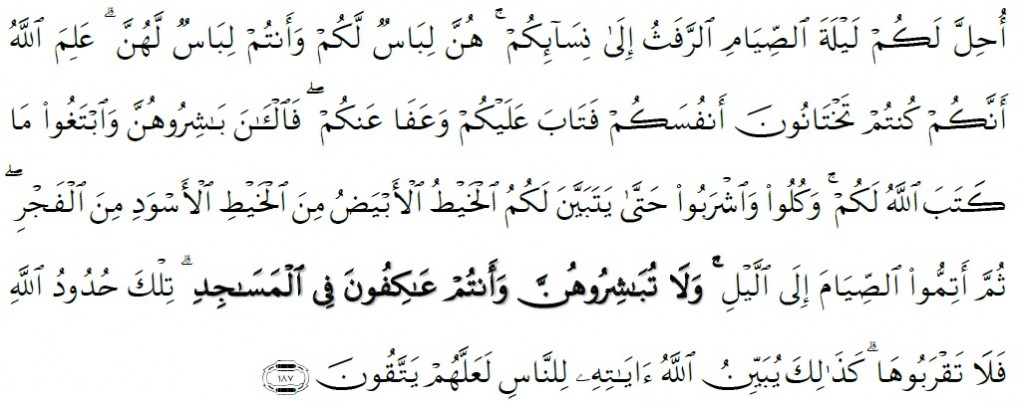Download .pdf
To be regular and constant in voluntary fasting
“I [‘Alqama (ra)] asked ‘A’ishah [ra], ‘Did Allah’s Messenger [saws] use to do extra deeds of worship on some certain days?’ She replied, ‘No, but his deeds were regular and constant. Who amongst you can endure what Allah’s Messenger [saws] used to endure?’”[1]
“The Messenger of Allah [saws] did not fast more in any month of the year than he did in Sha’ban and he used to say, ‘Take on as much deeds as you are able to for Allah [swt] does not grow weary but you do.’ And he used to say, ‘The dearest of deeds to Allah [swt] are those that a person does regularly even if they are small.’”[2]
To make intention to fast before dawn
“There is no fast for the one who does not intend [to fast] before dawn.”[3]
“If a man does not intend to fast from the night before he should not fast.”[4]
“None should fast except the one who intended to fast before dawn.”[5]
Unless you are a Prophet
“The Messenger of Allah [saws] passed by my door. He said, ‘Do you have anything [to eat]?” I [‘A’ishah (ra)] said, ‘I do not have anything.’ He said, ‘Then I am fasting.’” She said, ‘Then he passed by my door a second time and we had been given some hais. I brought it to him and he ate and I was surprised. I said, ‘O Messenger of Allah [saws] you entered upon me, and you were fasting then you ate hais.’ He said, ‘Yes O ‘A’ishah (ra). The one who observes a fast other than in Ramadan or making up a missed Ramadan fast is like a man who allocated some of his wealth to give in charity; if he wishes he may go ahead and give it and if he wishes he may keep it.’”[6]
A wife may not fast without husband’s permission
“The Messenger of Allah [saws] said, ‘A woman is not to fast in the presence of her husband without his permission except Ramadan and she is not to allow anyone in his house in his presence without his permission.’”[7]
Reward for voluntary fasting
“There is a gate in Paradise called Ar-Raiyyan. Those who fast shall be invited into it and whoever was among those who fasted then he will enter it; and whoever enters it he will never thirst again.”[8]

